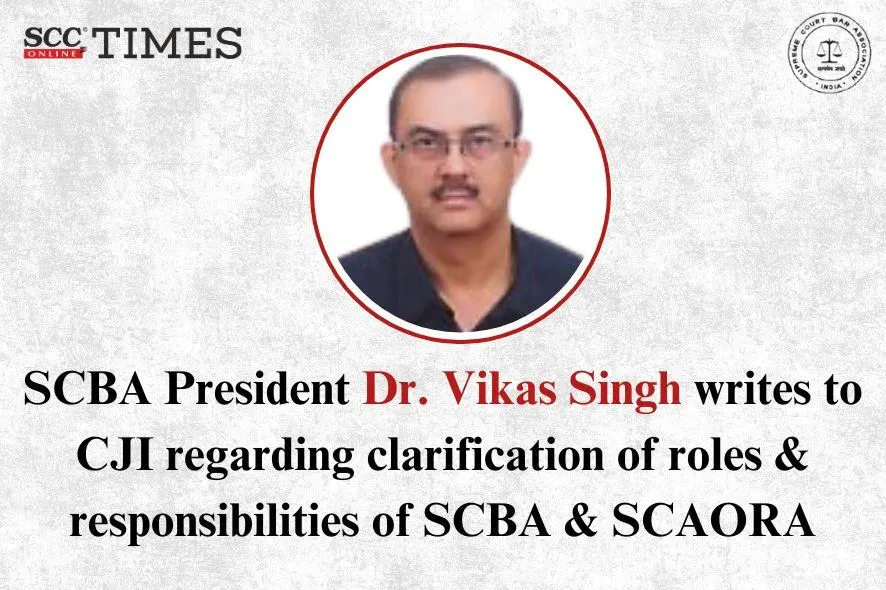On 4-6-2025, Senior Advocate Dr. Vikas Singh, the current President of Supreme Court Bar Association (SCBA), wrote a letter addressing Justice B.R. Gavai, the Chief Justice of India, concerning clarification of roles and responsibilities of the SCBA and Supreme Court Advocates-on-Record Association (SCAORA) to ensure smooth functioning of the Bar.
The President of SCBA (the President) in his letter, stated that as per the Rules and Regulations of SCAORA, it is a sub-set of SCBA. The letter further stated that a significant number of Advocates-on-Record (AoR) are not members of SCAORA, but they are members of SCBA so as to avail general bar facilities and chamber allotments.
The letter stated that in recent times, SCAORA has been acting beyond its mandate by issuing communications in matters relating to general infrastructure, facilities, and issues concerning general Bar members of the Supreme Court. It was stated that these subjects strictly fall within the exclusive domain of SCBA which represents the collective interests of all categories of lawyers practising in the Supreme Court.
The letter further stated that SCBA being the parent body representing the entire Bar, it is hence its responsibility to raise concerns, seek improvements and engage with the Registry and other stakeholders on issues of infrastructure and policy that affects the Bar as a whole. SCAORA on the other hand is mainly responsible for issues concerning AoR practice, such as matters related to filing procedure, registry protocols etc.
The President highlighted a letter dated 2-6-2025 issued by SCAORA to the Secretary General of the Supreme Court, regarding biometric entry for lawyers. It was stated that this letter was made to appear as if being presented on behalf of the entire Bar. Raising concerns on data privacy, the President stated that suggesting that lawyers should furnish biometric information without any official requirement or broader consensus, is fundamentally flawed and unwarranted. It was stated that existing proximity card system is working effectively.
The letter emphasised that SCAORA was formed to look into the interests of AoRs. However, when any matter concerns the general Bar or Supreme Court infrastructure, then such communication should be routed through the SCBA. It was further stated that as per Supreme Court’s decision in SCBA v. B.D. Kaushik, (2011) 13 SCC 774, it has been recognised that SCBA is the only association that represents the interests of Senior Advocates, Advocates as well as AoRs. Furthermore, since SCAORA is a sub-set of SCBA, its members are not precluded from voting in the SCBA elections under ‘one bar one vote’ principle. It was further stated that in Gopal Jha v. Supreme Court of India, (2019) 13 SCC 161, Supreme Court had held that membership of SCBA is mandatory for getting a chamber allotted in the Supreme Court.
The letter concluded stating that the afore-stated concerns have been raised so that the Bar continues to function cohesively and in a disciplined manner free from unnecessary overlaps or conflicts and that “the purpose of the letter is to promote a unified voice within the Bar, ensuring seamless collaboration and respect of institutional integrity, while maintaining harmony between the Bar and Bench”.
Source: Letter to CJI


